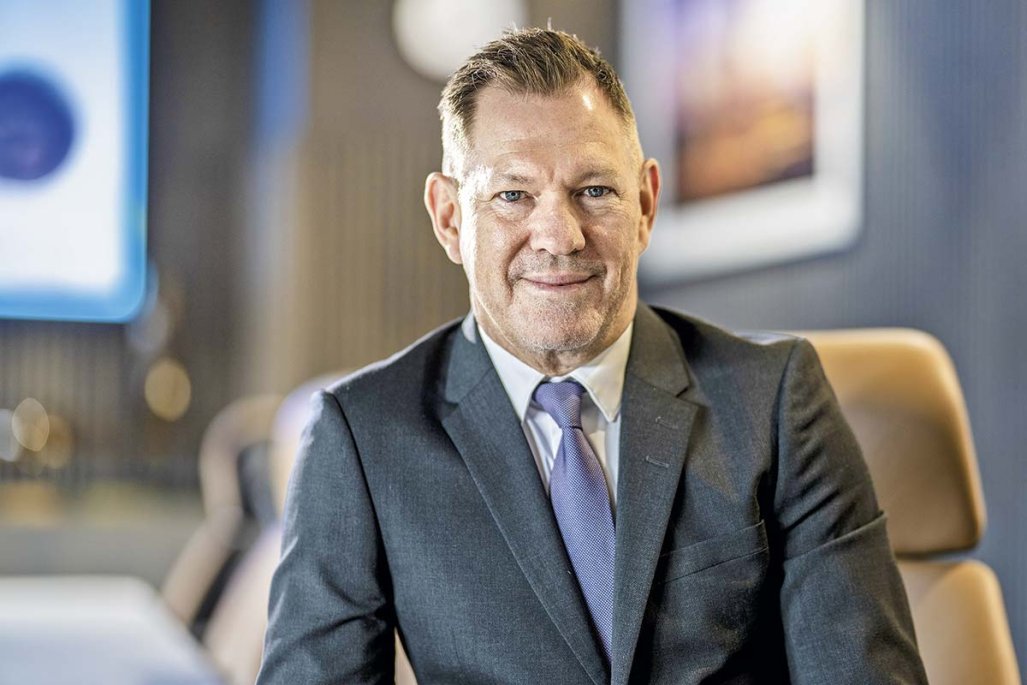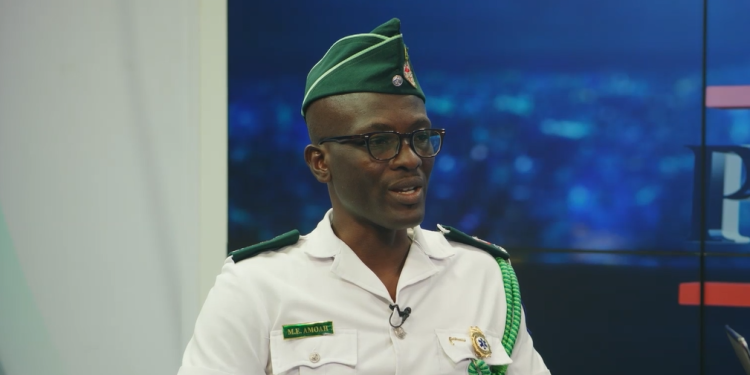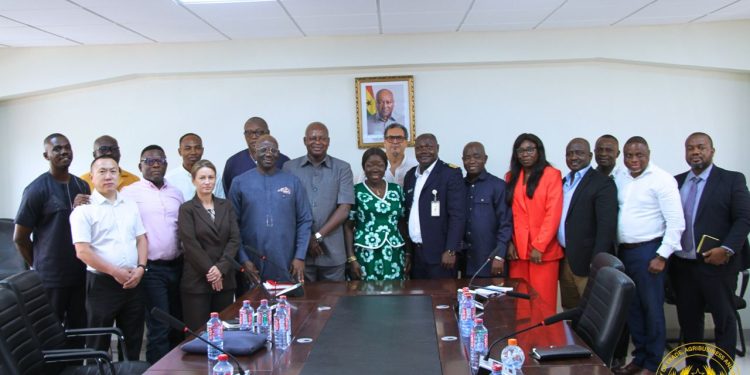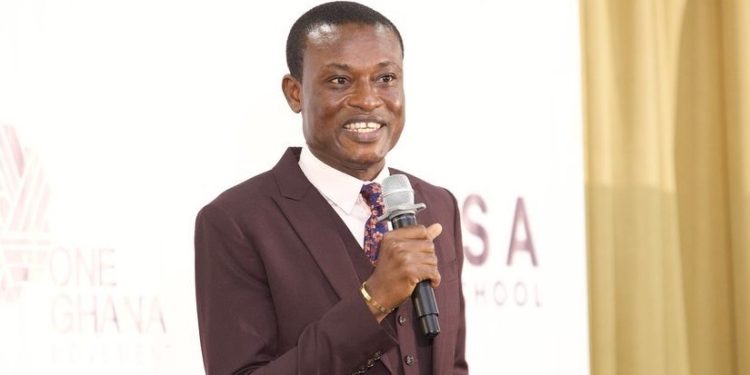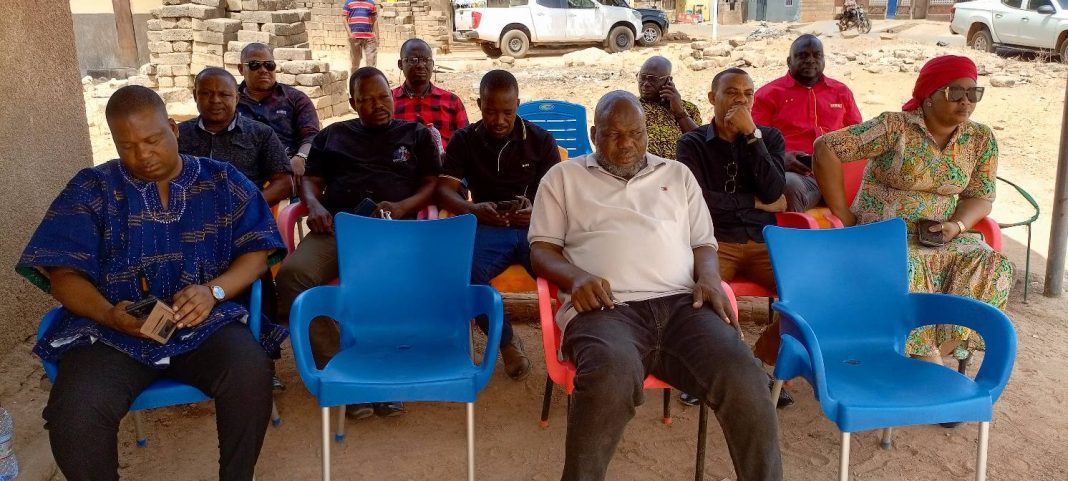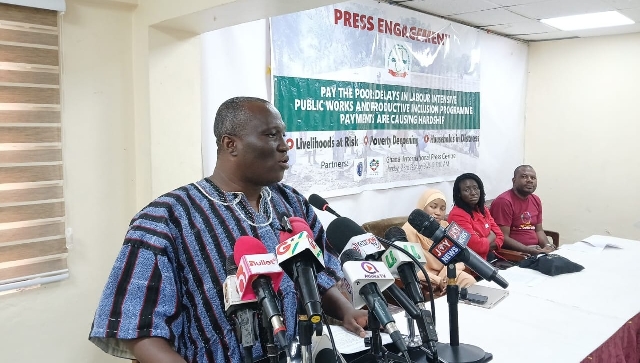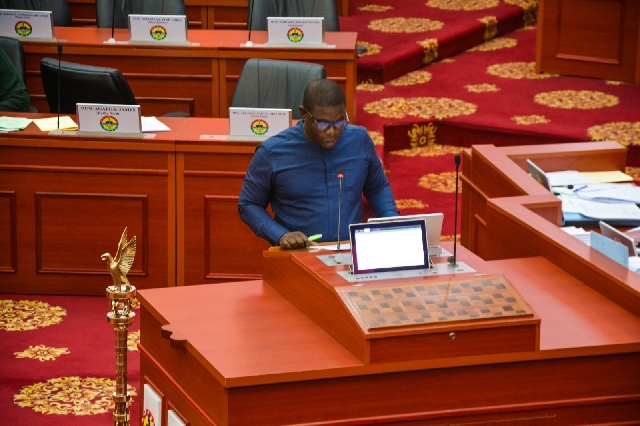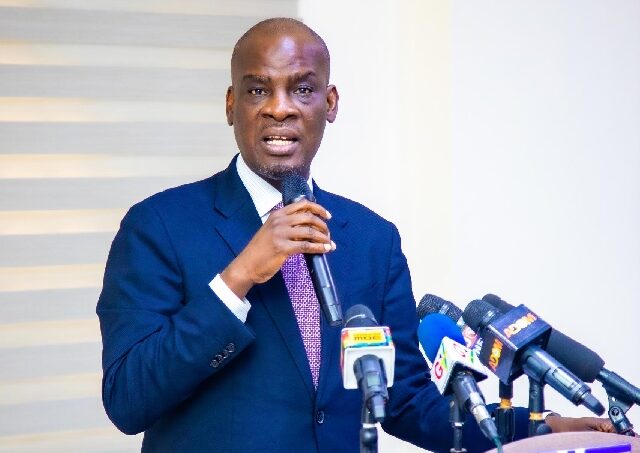Queen Mothers Speak Out Against Witchcraft Accusations and Lynching in Northern Ghana

Baare Queen Mother Georgina Bonsarigya and Bongo Queen Mother Christiana Asindiki Ngeh have expressed their concern over the increasing prevalence of witchcraft accusations and lynching in northern Ghana. These prominent figures, known for their cultural and religious influence, emphasized the negative consequences of such actions on the accused individuals and their communities. Both Queen Mothers stressed the importance of adhering to religious and cultural values that prohibit killing. They pointed out that the Bible, the Quran, and traditional cultural norms all condemn violence. Queen Mother Georgina emphasized that those who engage in killings within their culture must undergo specific rituals to address the spiritual consequences. Despite this understanding, reports of witchcraft accusations targeting elderly individuals and the impoverished continue to surface in northern Ghana. Queen Mother Georgina expressed her confusion over why elderly men and women are accused of witchcraft, as it is considered a spiritual matter that should be approached differently. When accusations are made, the accused often face physical assault, forced consumption of unknown substances, and immense pressure. Queen Mother Georgina highlighted that these actions not only harm the accused elders but also have lasting effects on their children and grandchildren. It deprives them of the opportunity to enjoy fulfilling relationships with their elder relatives. She emphasized the urgent need to address these alarming accusations against the elderly, which have serious implications for communities. Meanwhile, Queen Mother Christiana Asindiki Ngeh described witchcraft accusations as uncalled for and unlawful. She specifically addressed the youth, urging them to refrain from participating in such harmful acts. Queen Mother Ngeh emphasized that events on Earth are part of God’s plan and that individuals should not blame others to the extent of resorting to violence. She firmly urged the youth to abandon such actions, highlighting their illegality and moral wrongness. Instead of seeking revenge or placing blame on individuals, Queen Mother Ngeh advocated for turning to God during times of misfortune. She emphasized that accusations of witchcraft are impossible to prove, and torturing or forcing someone to confess to being a witch is not a valid form of evidence. She appealed to the community to prioritize the protection of life and seek more lasting resolutions in the face of adversity. However, Queen Mothers Georgina Bonsarigya and Christiana Asindiki Ngeh urged the community to refrain from engaging in evil deeds and unfairly blaming elderly women for societal problems. By doing so, they believe that further harm can be prevented, and a more harmonious society can be fostered. The documentary, “The Horrors of Witchcraft Accusation,” which featured interviews with these influential Queen Mothers, was produced by Ngamegbulam Chidozie Stephen of ApexnewsGh and it was sponsored by MRG and received additional support from MPEC. Source: Ngamegbulam Chidozie Stephen Please contact Apexnewsgh.com on email apexnewsgh@gmail.com for your credible news publications. Contact: 0256336062
Collaborate and Pass a Bylaw with Severe Penalties to Address Witchcraft Accusations and Lynching—Baare Chief to Assembly and Traditional Council
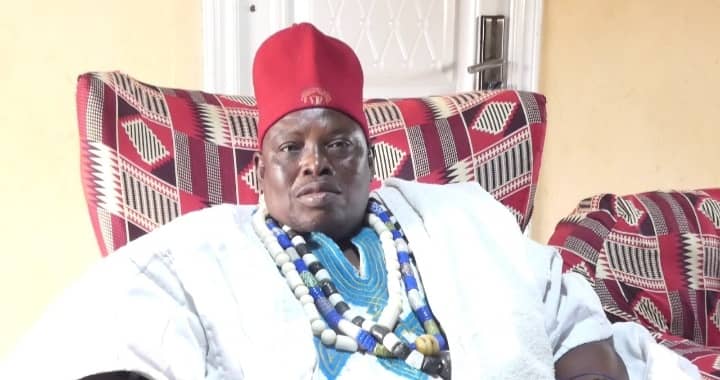
In an effort to combat the alarming issue of witchcraft accusations and the lynching of older individuals, Baare Chief Naab Nyaakora Mantii in the Talensi District of the Upper East Region is urging the Assembly and Traditional Council to pass a bylaw with severe penalties. The Chief acknowledges the gravity of the problem, not only in the Northern part of the country but throughout Ghana and is taking a bold stand to find a solution. Chief Nyaakora Mantii emphasizes the lack of scientific evidence supporting these accusations, highlighting that they are merely allegations without any legal basis. Lynching individuals based on suspicions of witchcraft goes against the laws of the country, an important message that needs to be conveyed to the whole world. The Chief stresses the need for the youth and the general public to understand the consequences of indiscriminately taking the lives of innocent people. Furthermore, Chief Nyaakora Mantii emphasizes the wisdom and knowledge that older individuals possess, highlighting the loss society incurs when these valuable resources are wiped out by mob violence. He urges the community to refrain from participating in such acts and instead tap into the valuable insights offered by the older generation, emphasizing the importance of unity and growth. The Chief calls on the Assembly and Traditional Council to collaborate and implement stricter measures to prevent these acts from occurring. He suggests the establishment of a bylaw with substantial punishments to deter individuals from engaging in witchcraft accusations and lynching. This preventative action will serve as a crucial step towards resolving this concerning issue. However, Chief Nyaakora Mantii suggests the need for education and awareness programs to help people differentiate between right and wrong. He acknowledges that ignorance plays a pivotal role in these accusations and believes that sensitization efforts, especially through media outlets, will greatly contribute to combating this problem. The Chief expresses gratitude for the opportunity to voice their concerns and pledges to spread the message within the council and community. Through a documentary titled “The Horrors of Witchcraft Accusation,” produced by Ngamegbulam Chidozie Stephen, which was sponsored by MRG and supported by MPEC, Chief Nyaakora Mantii opens up about the urgent need to address witchcraft accusations and lynching. He recognizes the importance of educating both the community members and chiefs on this matter to ensure a comprehensive solution. Source: Ngamegbulam Chidozie Stephen Please contact Apexnewsgh.com on email apexnewsgh@gmail.com for your credible news publications. Contact: 0256336062
Bishop of Tamale Diocese Expresses Concerns Over Modern Prophets and Witchcraft Accusations

In a thought-provoking documentary titled “The Horrors of Witchcraft Accusation,” the Bishop of Tamale Diocese, Right Revd Dennis Debukari Tong, revealed his difficulty in distinguishing the activities of modern prophets from those of soothsayers. The Anglican Bishop expressed his concern about the increasing trend of self-proclaimed prophets accusing family members of their congregants as witches and wizards. According to him, sometimes during his sermons, he raised questions about the absurdity of these accusations. He questioned how a mother, who has taken care of her child and supported them throughout their lives, could suddenly become a source of harm and destruction. He encouraged people not to believe pastors and prophets who blame their mothers for their misfortunes, emphasizing that it is often a result of personal choices or hard work. Bishop Tong expressed his dissatisfaction with the public nature of these accusations. He questioned why pastors and prophets couldn’t approach individuals privately if they believed they had a prophetic message for them. He argued that publicly shaming someone as a witch or pointing fingers in a group setting was irresponsible and could lead to the unraveling of families. Although Bishop Tong believes in prophecy, he emphasized that it should come with a solution or guidance on how to change the situation. He criticized prophets who accuse others without possessing the power to deliver them from their alleged afflictions. He maintained that if one is accusing someone of witchcraft, they should also possess the power to cure them, or else their prophecy is incomplete. Bishop Tong also highlighted the blurred lines between modern prophets and soothsayers, stating that some soothsayers have now taken on the appearance of prophets. He expressed disappointment that these activities have tarnished the image of the church, which should instead represent the teachings of Jesus. He reminded believers of the story in the book of John Chapter 8, where Jesus intervened and questioned the authority of those condemning a woman caught in adultery, urging them to examine their own faults. Bishop Dennis Debukari Tong shared these views in the documentary “The Horrors of Witchcraft Accusation,” produced by Ngamegbulam Chidozie Stephen. The documentary was sponsored by MRG, with support from MPEC. Source: Ngamegbulam Chidozie Stephen Please contact Apexnewsgh.com on email apexnewsgh@gmail.com for your credible news publications. Contact: 0256336062
Bishop Calls for Education to Combat Witchcraft Accusations in Ghana

Bishop of Tamale Diocese, Right Revd Dennis Debukari Tong, has urged society to take action against the rising trend of witchcraft accusations in Ghana. The bishop emphasized the importance of educating soothsayers, witch doctors who often play a significant role in branding elderly individuals as witches and wizards. In a recently released documentary titled “The Horrors of Witchcraft Accusation,” produced by Ngamegbulam Chidozie Stephen of ApexnewsGh, Bishop Tong expressed deep concern over the numerous instances of elderly people being wrongly targeted and even lynched due to these accusations. Drawing from biblical teachings, he highlighted the responsibility to care for the marginalized and poor, including the elderly. Referring to Matthew Chapter 25:31, the bishop noted that those accused of witchcraft should be considered among the marginalized. To elucidate his point, Bishop Tong mentioned the Gambaga witch camp, where individuals without any familial support are forced to seek refuge. He explained that these camps primarily house elderly people who have been branded as witches due to circumstances such as lacking children or losing their spouses. These vulnerable individuals often become targets for misfortunes, leading to their lynching. The bishop also shed light on the role of soothsayers in perpetuating these accusations. While recognizing that soothsaying is deeply rooted in tradition, he asserted the importance of educating practitioners. While banning soothsaying may not be feasible, he stressed the need to educate them, as these matters are spiritual and cannot be proven based on physical evidence. The insightful and thought-provoking documentary, produced by Ngamegbulam Chidozie Stephen and sponsored by MRG with the support of MPEC, enables viewers to gain a deeper understanding of the horrors faced by those falsely accused of witchcraft in Ghana. Bishop Dennis Debukari Tong’s plea for society to take proactive measures to combat these baseless accusations serves as a call to action for all individuals invested in the well-being and protection of the marginalized. Source: Ngamegbulam Chidozie Stephen Please contact Apexnewsgh.com on email apexnewsgh@gmail.com for your credible news publications. Contact: 0256336062
Growing Trend of Witchcraft Accusation and Lynching Described As Satanic Practice By Rev. Fr Msgr Aboteyuure
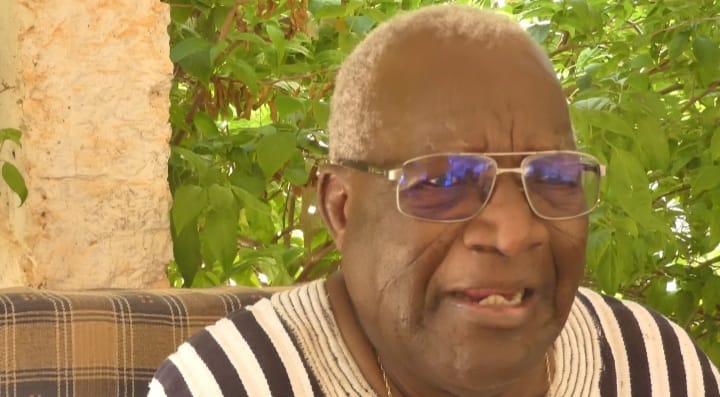
In a recent engagement with Ngamegbulam Chidozie Stephen of ApexnewsGh, Rev. Father Msgr Roger Aboteyuure expressed has his deep concern and condemnation of the increasing cases of witchcraft accusation in various communities. He highlighted the tragic consequences of these accusations, which have led to the lynching of innocent and vulnerable old men and women. Rev. Father Aboteyuure commended those who are actively working to combat this barbaric and satanic practice, emphasizing that it goes against cultural norms. He stressed that while people may avoid individuals believed to be witches, it is never acceptable to take someone’s life based on such accusations. The Rev. Father also shed light on the historical background of witchcraft belief, stating that even the Catholic Church once believed in witches and engaged in the killing of individuals like St. John of Arc. However, he emphasized that such beliefs are archaic and no longer hold true in modern society. He firmly stated that the notion of spirits roaming at night to kill and eat souls is a fallacy and unrealistic. Rev. Father Aboteyuure urged for education to help people understand that the spirit of life cannot be taken away by anyone. He called on the government to take urgent and drastic measures to put an end to this heinous and inhumane behavior. He expressed his sadness over the fact that innocent women are being labeled as witches, resulting in them being segregated from society in designated houses. The Reverend Father observed that the victims of witchcraft accusation are often poor, defenseless individuals who lack influential support. He used the example of his own childhood, where he was told that the chief in the village was using young men’s lives for himself. He realized later that these beliefs were baseless. Rev. Father Aboteyuure raised alarm over the alarming rate at which witchcraft accusations against marginalized individuals are increasing in Ghana, particularly in certain regions of the country. He pleaded for immediate action to address this pressing issue, which poses a threat to the lives of innocent elderly men and women. In conclusion, Rev. Father Msgr Roger Aboteyuure joined the fight against the growing trend of witchcraft accusation and called for the protection and defense of those who are vulnerable to such accusations. He denounced these acts as barbaric, satanic, and against cultural values, urging society to reject these harmful beliefs and practices. Source: Ngamegbulam Chidozie Stephen Please contact Apexnewsgh.com on email apexnewsgh@gmail.com for your credible news publications. Contact: 0256336062
Traditional Healers in Northern Ghana Defend Their Practices

In the northern part of Ghana, traditional healers Atigaris and Nana Gyendus are highly respected for their abilities to diagnose and treat spiritual health problems. Often called witch doctors or finders, these healers have faced criticism for their methods, which sometimes lead to negative consequences. Accusations of witchcraft and questionable remedies administered to the accused have raised concerns among the public. One such healer, Atigari Rita Adugbire from the Zaare community, a fetish priestess, recently spoke out against the negative perception of traditional healers. In a documentary called “THE HORRORS OF WITCHCRAFT ACCUSATION,” she aimed to raise awareness about the dangers of accusing people of witchcraft and the subsequent lynching of alleged witches and wizards. Adugbire explained, “When someone is bewitched and they come to us for help, our main focus is always on healing and the well-being of the affected person, rather than seeking out the witch responsible for the spell. We do not randomly accuse individuals, especially the elderly, of being witches. It is the witches themselves who come to us for treatment. We understand that witches can be of all ages and sizes, and our duty remains solely to heal the person in need. However, if our deities guide us to find the witch, we will accept their intervention.” She also shared insights into the practice during festivals, stating, “During these festivals, a witch from a distant place may come forward and confess to bewitching someone who has already been treated by us. This confession happens in front of the congregation, even when I may not be aware of it. It is crucial to note that we do not punish anyone who confesses to being a witch. Our main priority is to heal the person who has been bewitched.” Adugbire emphasized that their healing practices focus on reviving the affected person, even if a witch confesses to bewitching them. However, if the witch decides to spiritually cook and consume the person’s meat, they are unable to save the individual. In contrast, Aduku Agubire, the Atigari of the Yorogo Community, pointed out that most cases of witchcraft accusation and subsequent lynching are caused by churches and fake prophets in the region. She stated that many people seek refuge from traditional healers because of their successful assistance. Sadly, some individuals attend churches where they claim their family members have put a spell on them. Agubire urged churches to refrain from making such statements and fueling accusations of witchcraft. Ghana is witnessing a disturbing trend of witchcraft accusation and lynching, particularly in the northern parts of the country. It is important for society to address these issues and promote understanding and tolerance towards different spiritual beliefs and practices. During my journey to Sirigu, a community in the Kassena Nankana West District in the Upper East Region, I had the incredible opportunity to meet Nana Gyendu. Nana Gyendu is a well-known fetish priestess renowned for her extraordinary spiritual powers when it comes to matters of health. Nana Gyendu graciously shared her unique process with me. She explained that if someone is brought to her and accused of being a witch, she cannot make the decision on her own about what should be done with that person. Instead, she communicates with the shrine, relaying the information that the person has been accused of witchcraft and asking for guidance on how to handle the case. The shrine, in turn, provides a solution. Nana Gyendu emphasized that she does not mistreat the accused person in any way. She never resorts to physical violence or administers any substances for the person to swallow in order to extract a confession. Instead, she explained that both she and the accused person are operating on a spiritual level. Her role is simply to inform the shrine about the accusations brought by the people. Once this information is conveyed, the shrine and the accused person connect with each other in the spiritual realm. If the accused person is truly a witch, they will immediately confess. Following this confession, the shrine will show Nana Gyendu the medicine required to free the alleged witch. Nana Gyendu’s explanation shed light on her unique approach to dealing with cases of alleged witchcraft. It highlighted her respect for the individuals involved and her reliance on spiritual connections to ascertain the truth. Her process serves as a reminder that there are various perspectives and methods in addressing complex issues such as witchcraft accusations and understanding them is crucial to fostering empathy and seeking solutions. The documentary was sponsored by MRG and with support by MPEC Source: Ngamegbulam Chidozie Stephen Please contact Apexnewsgh.com on email apexnewsgh@gmail.com for your credible news publications. Contact: 0256336062
Witchcraft Accusations: A Threat to Vulnerable Individuals in Northern Ghana
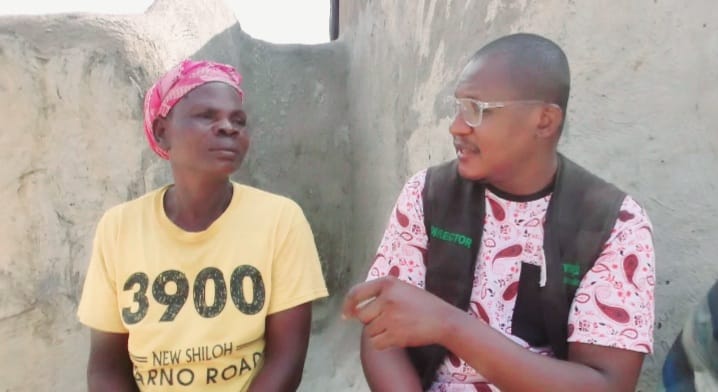
In the Nabdam District of the Upper East Region in Ghana, a Pelungu woman named Kolama Sampana found herself at the center of a distressing situation when she was accused of being a witch by a fellow community member. In a documentary entitled “THE HORRORS OF WITCHCRAFT ACCUSATION,” produced by Ngamegbulam Chidozie Stephen, Kolama shared her ordeal, emphasizing her lack of knowledge about witchcraft. This case highlights a concerning trend in the northern part of Ghana, where witchcraft accusations and subsequent acts of lynching have become alarmingly common. It puts the lives of elderly men and women within the society at risk, as they are often perceived as vulnerable and accused of being witches. Kolama’s experience began when she was called to the chief’s palace, where she found herself confronted by six individuals and a prophet. The chief informed her that she had been accused of spiritually bewitching a woman’s son and the chief himself, allegations she vehemently denied. The accuser claimed to have received this information from the pastor during a church service and also alleged that she had witnessed Kolama bewitching her son. Despite Kolama’s consistent denials, the accusations persisted, leading to the suggestion of consulting a soothsayer. Kolama refused to take an oath or accompany them to the soothsayer, firmly asserting her innocence and demanding evidence to prove otherwise. However, a subsequent visit to the chief’s palace only intensified the accusations. Kolama challenged the accuser and suggested that if they truly believed she was a witch, the prophet should pray for her or ask the accuser’s mother to confess. However, the chief rejected this suggestion, and instead of praying for them, they decided to consult a soothsayer who provided a concoction to drink. Interestingly, after consuming the concoction, Kolama and the other accused woman were declared not guilty. Nevertheless, they were asked to contribute more money to find a different soothsayer, but they could not afford it. Luckily, Kolama’s brother intervened, bringing the matter to the attention of the police in Bolgatanga. The police investigated the case, and the chief was instructed to return all the items, money, and animals acquired from Kolama and the other accused woman. Reflecting on the experience, Kolama expressed her frustration with the false accusations and urged people to refrain from labeling others as witches. She highlighted the importance of treating each other as equals, as we are all creations of God. While Kolama feels safe in her community, she no longer enjoys the freedom she once had due to the lingering stigma surrounding the accusations. In the midst of this ordeal, Kolama’s husband, Mr. Sampana Sapak, stood by her side, expressing his deep sadness and pain over the unjust accusations against his wife. He attested to their peaceful marriage and vehemently denied any knowledge of her being a witch. The comments and judgments passed by others when he was out in the community deeply affected him and made him feel disheartened. This story serves as a powerful reminder of the danger and injustice posed by witchcraft accusations, particularly towards vulnerable individuals. It urges society to reject such baseless allegations, treat everyone with respect and equality, and put an end to the rampant stigmatization that threatens innocent lives in northern Ghana. The documentary was sponsored by MRG and with support by MPEC Source: Ngamegbulam Chidozie Stephen Please contact Apexnewsgh.com on email apexnewsgh@gmail.com for your credible news publications. Contact: 0256336062
President of Upper East Region Youth Condemns Acts of Witchcraft Accusation Leading to Mob Violence
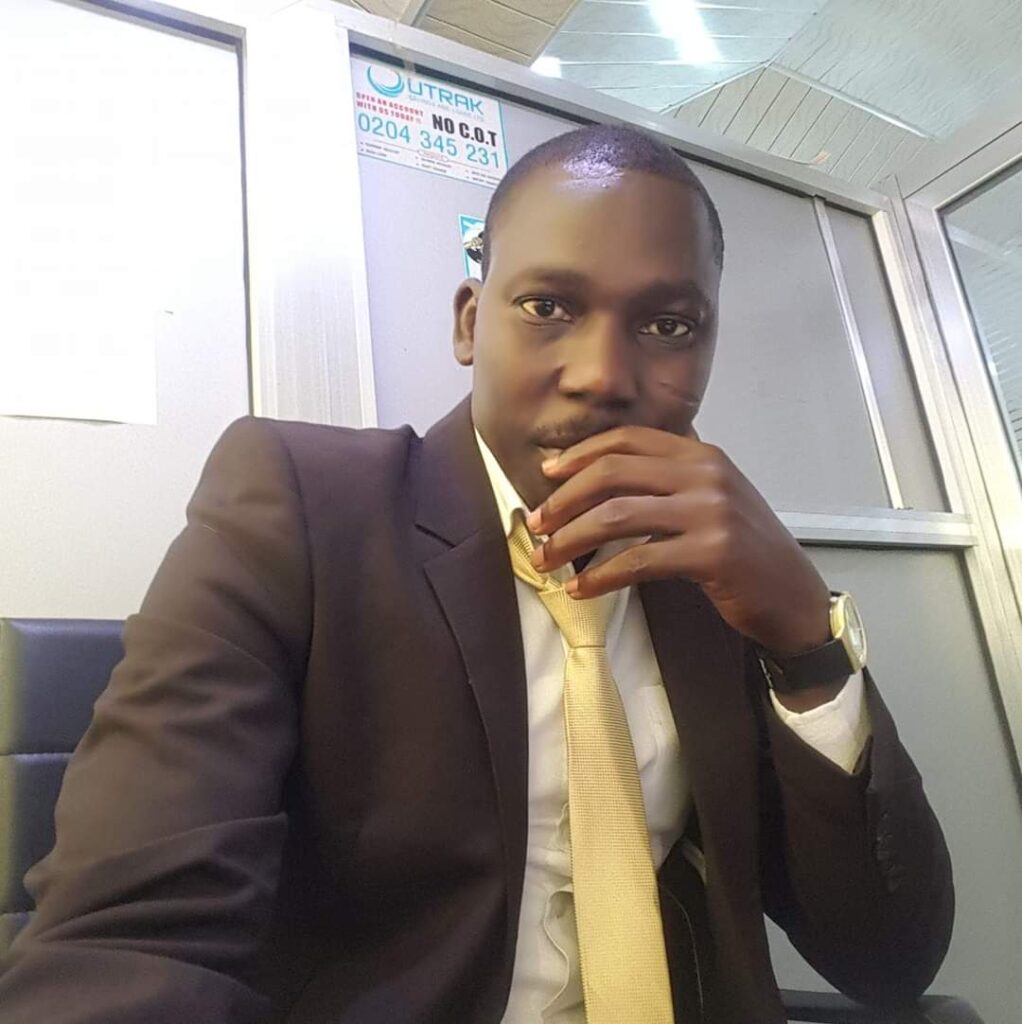
In a recent documentary titled “THE HORRORS OF WITCHCRAFT ACCUSATION,” produced by Ngamegbulam Stephen Chidozie of ApexnewsGh, Francis Adingo, the President of the Upper East Region Youth, expressed strong condemnation for the acts of youth engaging in witchcraft accusations that have led to lynching and mob violence against innocent elderly individuals. Adingo described such actions as “unacceptable” and highlighted the importance of the wisdom and knowledge that our old men and women bring to our homes. Adingo emphasized that the region has witnessed barbaric acts that must be condemned in the 21st century. He stressed that it is unjustifiable for the youth and other community members to take the law into their own hands and cause harm to someone based on a mere suspicion of being a witch or wizard. Adingo, along with the Upper East Youth Association and the Civil Society Organization, firmly condemned such acts that have occurred in Pelungu and other parts of the region. Adingo raised concerns about the impact of these accusations on our society. He stated that in this day and age, parents work hard to provide education for their children, hoping that they will become successful and take care of them in their old age. However, if their own children join forces with others, wrongfully accusing them of witchcraft, it is unacceptable. Adingo highlighted the importance of the elderly, who are the bearers of wisdom in our communities, and warned against the consequences of losing them. Adingo called on all stakeholders, including traditional rulers, assembly members, and the police, to address this issue promptly. He urged traditional rulers to abolish any existing laws that perpetuate witchcraft accusations, and for assembly members to play an active role in eradicating this barbaric practice. Adingo also stressed the importance of the police gathering intelligence quickly to protect the elderly and prevent further harm. He expressed his concern about the future repercussions if young people stand idle and watch their fellow youths inflict harm on elderly individuals based on baseless suspicions of witchcraft. Adingo reiterated that the elders hold invaluable traditional knowledge, and their loss would greatly impact the younger generation. He called on society as a whole to prioritize the protection and respect of the elderly, as they serve as the guardians of our traditions and cultural heritage. Mr. Adingo firmly stated that these acts of witchcraft accusation leading to violence have no place in modern society. He urged everyone to join forces to put an end to this inhumane practice and ensure the safety and dignity of our elderly parents and community members. The documentary was sponsored by MRG and with support from MPEC. Source: Ngamegbulam Chidozie Stephen Please contact Apexnewsgh.com on email apexnewsgh@gmail.com for your credible news publications. Contact: 0256336062
Paramount Chief Denounces Lynching as Part of Northern Tradition

Naba Yelzoya Kosom Asaga II Paramount Chief of the Nangode Traditional Area in the Nabdam district of the Upper East Region has clarified that lynching is not part of the northern tradition, regardless of the reasons behind it. He pointed out that in the southern regions, witchcraft is sometimes regarded positively and believed to bring protection and other benefits, but the emphasis in the north is not on the goodness of witchcraft. In a recent documentary titled “THE HORRORS OF WITCHCRAFT ACCUSATION,” Naba Yelzoya Kosom Asaga II, the Paramount Chief of Nangodi Traditional Area in the Nabdam District of the Upper East Region, spoke out against the lynching of old men and women accused of witchcraft. The documentary was produced by Ngamegbulam Chidozie Stephen of ApexnewsGh. According to the chief, the recent rise in witchcraft accusations and subsequent violence is a result of a mix of religions in the region. He condemned these acts and explained that lynchings had occurred in his traditional area, particularly in the Pelungu community, due to ignorance. The chief acknowledged that although legally the chiefs may have done nothing wrong, they should have handled these situations more wisely. He emphasized the need to send perpetrators of violence through the proper legal channels rather than resorting to mob justice. Naba Yelzoya Kosom Asaga II also clarified that lynching is not part of the northern tradition, regardless of the reasons behind it. He pointed out that in the southern regions, witchcraft is sometimes regarded positively and believed to bring protection and other benefits, but the emphasis in the north is not on the goodness of witchcraft. He highlighted that traditional religions in Northern Ghana do not involve physical bloodshed or human sacrifice, as seen in other parts of the country. The Paramount Chief emphasized that respect for human life is a core value in the northern tradition. The integration of traditional religion with Christianity and Islam in the region has led to a blurring of beliefs and practices, contributing to the rise in lynching. The chief urged traditional rulers to work hand in hand with the police and the court system to combat this issue, calling for extensive discussions and cooperation. Expressing concern for the safety of those accused of witchcraft, the Paramount Chief shared that some individuals had fled their communities due to fear and ostracization. He stated that accusations of witchcraft should be dealt with through treatment, known as deliverance, followed by reintegrating the accused back into the community. Naba Yelzoya Kosom Asaga II affirmed that lynching is illegal and should be condemned. He called for individuals involved in such acts to be held accountable under the law to deter further instances of this evil behavior. The paramount chief advocated for collaboration between the police and traditional rulers to address the issue effectively. He stressed the importance of restoring and reintegrating those accused of witchcraft into society rather than banishing them, emphasizing the need for rehabilitation and support. Meanwhile, the documentary was sponsored by MRG with support from MPEC. Source: Ngamegbulam Chidozie Stephen Please contact Apexnewsgh.com on email apexnewsgh@gmail.com for your credible news publications. Contact: 0256336062
Upper East House of Chiefs President Calls for an End to Witchcraft Accusations Against the Elderly
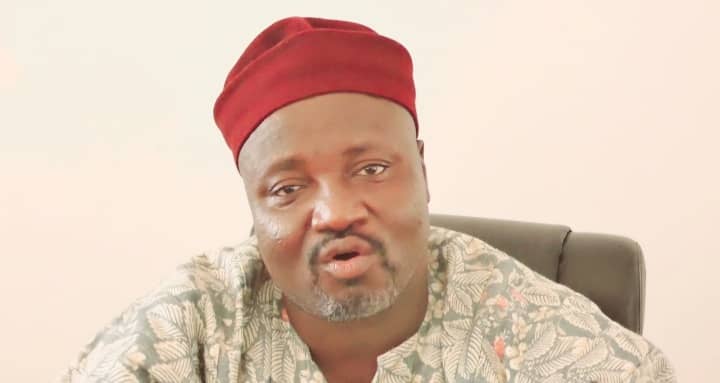
The Paramount Chief of the Chiana Traditional Area, Pe Dituudini Adiana Ayagitam III, who also doubles as the President of the Upper East Regional House of Chief, has urged the people of the Upper East Region and Ghanaians in general to stop the lynching of elderly individuals based on the misconception that they are witches. Expressing concern over this unfortunate practice, particularly prevalent in the northern parts of the country, the President of the Regional House of Chief emphasized the need to cherish and support the elderly. He stated, “We should aspire to be known as a country that values and respects long life, instead of a country that prematurely ends it. Let us extend our wholehearted support to them and endeavor to understand the factors that have contributed to their longevity, so that we may learn from their lifestyles. We ourselves grieve and feel immense sorrow when a young life is lost prematurely.” He advised These clarion calls were made during the airing of a documentary titled “THE HORRORS OF WITCHCRAFT ACCUSATION,” produced by Ngamegbulam Chidozie Stephen of ApexnewsGh. The President of the Regional House of Chief emphasized the respected status of the elderly within society and acknowledged their wisdom and knowledge of community history. “In the Kessena enclave, we consider the aged as individuals whom God has blessed. We often seek their guidance and insights.” He further dismissed the misconceived notion that old age equates to witchcraft, highlighting the fact that longevity is a blessing from God rather than an indication of malevolence. He urged society to dispel this harmful belief and uphold the respect and dignity of the elderly. Addressing the issue of witchcraft accusations, the President called for tighter regulation and monitoring of soothsayers and fetish priests who claim to possess the ability to detect witches. He suggested that such activities should be subject to oversight by the traditional authorities, specifically the Paramountcy’s or divisions. This would ensure that decisions regarding accusations are made with the involvement of traditional leaders, rather than allowing the youth to take matters into their own hands. He also questioned the decision to involve the youth in taking an accused individual to a soothsayer, emphasizing the need for responsible and informed action. The Paramount Chief passionately advocated for an end to the lynching of elderly individuals and urged society to celebrate their longevity. By recognizing and respecting the factors that contribute to longer life, Ghana can embody a culture of honor and support for its elder citizens. The documentary was sponsored by MRG with support from MPEC.


